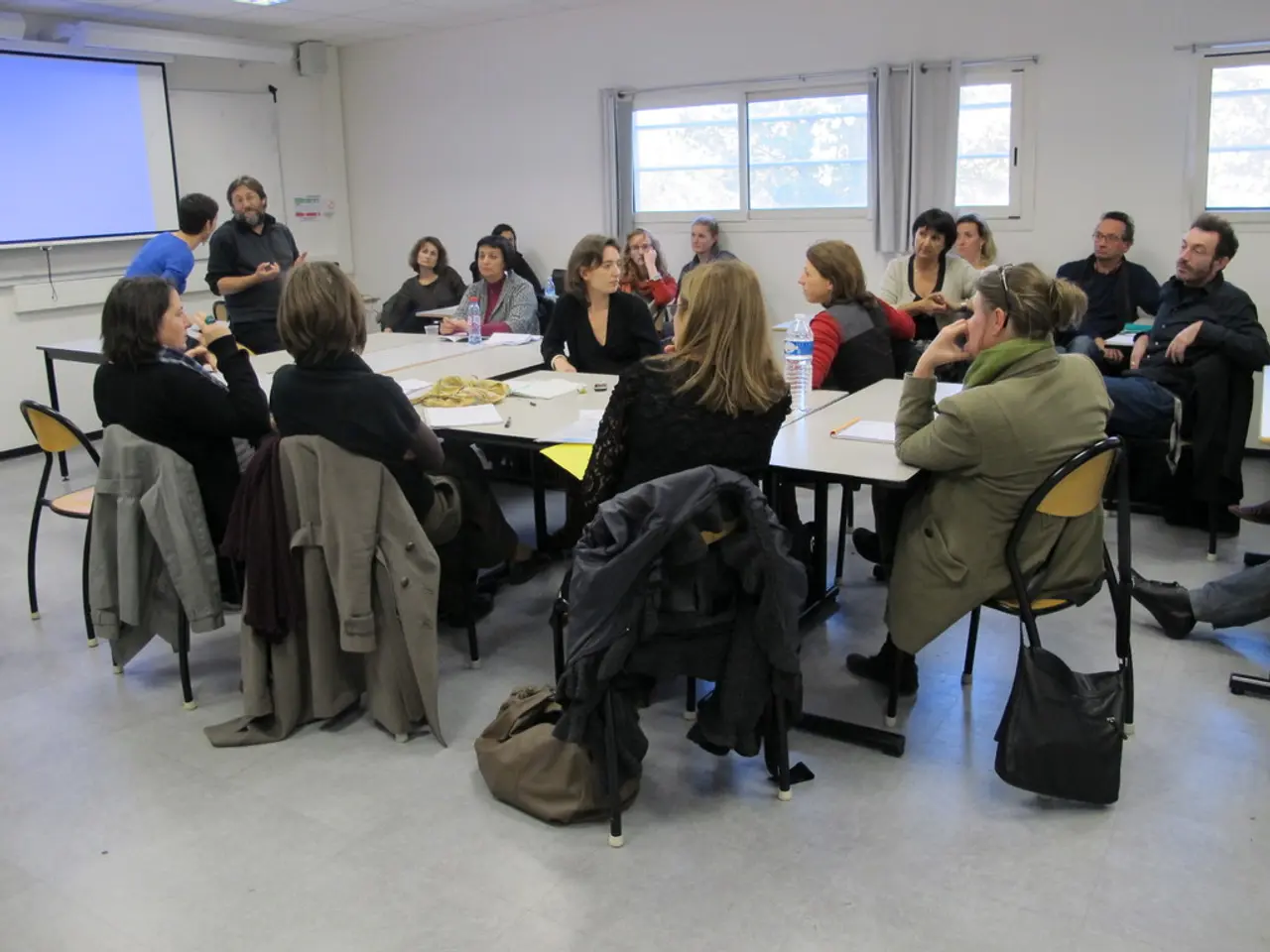ChatGPT Utilization Differences Across Generations: Boomers Seeking Recipes, Gen-Z Seeking Therapy for Unique Uses
In the rapidly evolving digital landscape, ChatGPT has become a popular tool for users across various age groups. From millennials to boomers, each demographic leverages this AI model for unique purposes, reflecting their life stage, professional needs, and tech savviness.
Millennials, aged 25-34, make up the largest user group, accounting for nearly one-third of ChatGPT's user base. These postgraduates and mid-career professionals primarily use ChatGPT as a productivity tool in the workplace. They rely on it for research, coding, writing, marketing, customer support, and product development, positioning ChatGPT as an essential business asset [1][2][3].
Young adults, aged 18-24, constitute another significant user group. These individuals, often students, use ChatGPT for learning assistance, homework help, creative writing, and exploration of new ideas. They also engage with it for social media content creation and entertainment, leveraging ChatGPT’s language capabilities for diverse creative and educational needs [1][2].
Mid-career professionals aged 35-44 use ChatGPT similarly to the 25–35 group but may emphasize strategic planning, complex problem-solving, and leadership support tasks, reflecting their advancing careers [1][2].
Usage declines progressively among older age groups. Approximately 11% of users are aged 45-54, 6-8% are 55-64, and around 3-5% are 65 and older. These older users may focus more on personal assistance, information retrieval, and less intensive professional use due to lower adoption rates and varying tech familiarity [1][2].
Interestingly, gender differences are relatively evenly distributed, with approximately 55-64% of users being male, and 36-45% being female [2][4].
The variation in usage across age groups is driven by factors such as professional stage and responsibilities, tech adoption comfort, and educational background. Younger adults are students or early professionals leveraging ChatGPT for education and job tasks, while older users focus on workplace efficiency or personal utilities [1][2].
ChatGPT's role varies by age. For younger adults, it serves as an educational and creative aid. For mid-career professionals, it's a powerful workplace productivity assistant. Among older demographics, its use is more limited but practical, focusing on tasks such as rewriting resumes and simplifying health insurance documents [1][2][3][4].
Sam Altman, OpenAI's CEO, has acknowledged this diversity in usage, stating that different age groups use ChatGPT in different ways [5]. To teens, ChatGPT feels like the next evolution, who grew up using search engines. Interactions with ChatGPT by older adults are slower and more intentional [5].
The number of older adults discovering AI is increasing, with only 13% currently using ChatGPT, but this figure is expected to rise [6]. Older adults over 55 use ChatGPT for tasks such as rewriting resumes and simplifying health insurance documents [6].
Gen-X, aged 35-54, accounts for almost 32% of ChatGPT's user base. This demographic uses ChatGPT for pragmatic purposes such as streamlining reports, planning family vacations, and decoding corporate emails. Gen-X tends to keep their use of ChatGPT transactional and does not need it to be fun, just useful [7].
Over a third of young adults use ChatGPT regularly, and this group uses it for a wide range of purposes, from building businesses and writing SEO blogs to crafting parenting guides and brainstorming TikTok hooks [7].
In conclusion, ChatGPT is a reflection of each generation's needs, anxieties, and aspirations. As technology continues to advance, it's fascinating to observe how different age groups adapt and integrate these tools into their lives.
Sources:
- ChatGPT Usage by Age and Demographics
- Age and Gender Breakdown of ChatGPT Users
- ChatGPT in the Workplace: A New Era of Productivity
- Gender Gap in AI Usage: A Closer Look
- Sam Altman on the Diverse Usage of ChatGPT
- Older Adults Embrace AI: The Rising Use of ChatGPT Among Boomers
- Gen-X and ChatGPT: A Pragmatic Approach to AI
A family dinner conversation might revolve around the latest technological advancement, artificial-intelligence, and its representative, ChatGPT. The younger members, particularly students, express excitement about its potential as an educational and creative aid, while the older adults curious about technology see it as a practical tool for simplifying tasks such as rewriting resumes and decoding complex health insurance documents. The art of storytelling may even be influenced by the use of ChatGPT, with young entrepreneurs using it to brainstorm business ideas and TikTok content, and the mid-career professionals relying on it for research and writing tasks in their professional lives.




